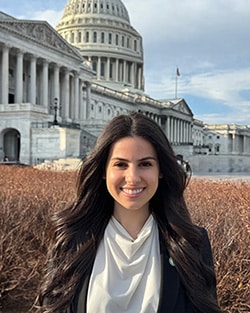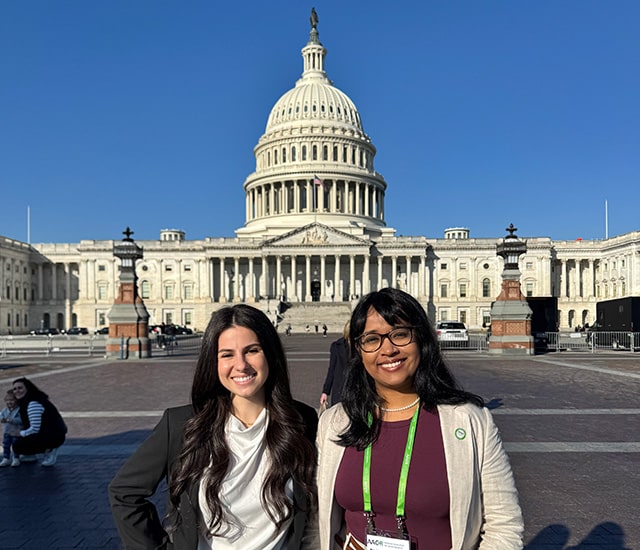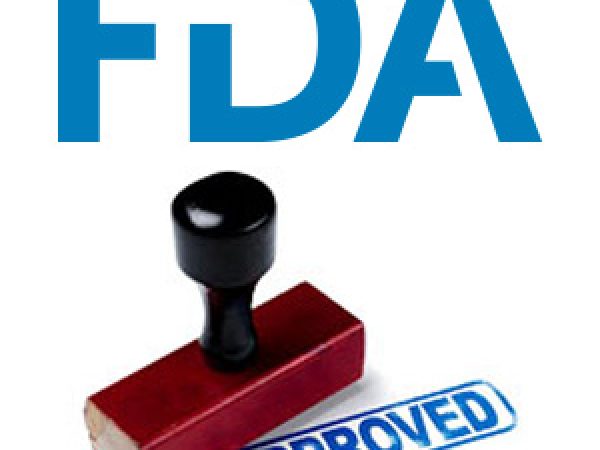My Trip to Washington for AACR Early-career Hill Day 2025
By Natalie Snider-Hoy, PhD candidate, Wayne State University
I understand the importance of funding the National Institutes of Health (NIH). I understand it as a trainee at a National Cancer Institute (NCI)-designated comprehensive cancer center where I have conducted research on several NIH-funded projects and have been supported by a T32 training grant as a PhD candidate. But I also understand it as a daughter. My mother was diagnosed with bladder cancer nearly two years ago, and she is in remission because of a therapy that was tested with the support of NIH funding. NIH funding not only benefits scientists—it benefits all Americans.

At Wayne State University, I am studying the social and biological risk factors of colorectal cancer and how they affect molecular epidemiology. My training has piqued my interest in applying emerging scientific research to make real-time public health and policy decisions. This also led me to explore how we can utilize policy and work with our elected officials at a national level to ensure support for the scientific research needed to make such decisions. I began participating in science advocacy work with my campus National Science Policy Network branch, SciPol-Detroit. With this experience, I attended the AACR Early-career Hill Day in both 2023 and 2024.
Of course, we knew the 2025 AACR Early-career Hill Day, held on February 26, would be different. In fact, it might have been the most crucial one yet. With the unprecedented uncertainty of the NIH’s resources and abilities, we had quite a bit more to discuss with so much now at stake. Just some of the actions we have seen from the new administration that impact the NIH are:
- On January 22, NIH stopped posting any new notices in the Federal Register, which is required before any meetings to review grant applications can be held. This effectively stopped NIH from reviewing new grant applications until February 26, when NIH announced that the agency could begin sending notices incrementally to the Federal Register to advertise meetings of scientific review groups. However, other types of meetings remain on hold, which means the later stage of grant review will remain paused.
- The administration has dismissed roughly 1,200 probationary employees at NIH. Further workforce reductions at NIH could be possible per guidance issued by the Office of Personnel Management on February 26.
- The administration is trying to cap the rate at which NIH reimburses indirect costs of doing medical research at 15%. This applies to both new and existing grants. However, in February, a U.S. District Court judge in Boston issued a temporary restraining order that blocks the cap from going into effect until a final decision can be made.
All these actions have negative effects on early-career investigators. The slowing of grant reviews hinders graduate students from working on new projects and threatens the already uncertain timeline of new professors establishing themselves. These dismissed probationary employees at NIH include new investigators, leaving them jobless with very valuable but specified skillsets that might not be optimally utilized outside of their fields. The threat of more dismissals will deter many graduate students from pursuing postdoctoral fellowships at the NIH, which has been a sought-after training environment for decades. Lastly, the capping of indirect costs threatens the very infrastructure that keeps research supported. Costs like laboratory space, regulatory oversight, and shared equipment are essential to keep research running.
Now more than ever, we need support for robust, sustained NIH funding and to ensure the NIH has the permission to fulfill its roles and obligations without restrictions.
What We Learned at AACR Early-career Hill Day 2025
This year, with my prior experience, I was selected as a group leader to run meetings with my colleague Ranjini Bhattacharya, a PhD candidate in mathematical oncology at the Moffit Cancer Center in Tampa, Florida. The Hill was much busier than in the last two years, so I knew we needed to allow extra time for security. We also expected these offices to have more questions for us regarding how these recent executive actions affect us, so we took extra time to plan out the best routes through the House and Senate building basements to avoid any delays.
Though things look and feel different this year, our overall message has remained the same: robust, sustained funding for the NIH and NCI is critical to support our fight against cancer for all Americans. We asked members of Congress for the highest possible increases in NIH and NCI funding in fiscal year (FY) 2025, as well as for Congress to complete work on FY 2025 spending bills as quickly as possible to avoid delays and disruptions caused by continuing resolutions.

We met with seven offices, four from the state of Michigan and three from the state of Florida. No matter their partisanship, the offices were receptive to our messaging. Fighting cancer is a bipartisan goal, and members of Congress want to help their constituents. They are proud to learn about the work taking place at the cancer centers in their state and district. We discussed the roles of various research groups in our cancer centers, the most exciting newly funded projects, and even preliminary findings from our own dissertation research. Showcasing the progress and innovations we have made over time, especially at institutions in their home state, provides congressional members with direct evidence of the returns of biomedical research investments.
Though some lawmakers have reservations over the federal budget, they also understand that investment in cancer research brings immense returns over time. I have seen members of Congress on both sides promise to push for our funding requests. Senators Gary Peters (D-MI) and Rick Scott (R-FL) and Representative Debbie Dingell (D-MI-14) have all previously signed “Dear Colleague” letters in support of NIH, and other lawmakers like Representative Shri Thanedar (D-MI-13) plan to do the same this year.
Craft Your Message to Advocate for More Cancer Research Funding
While beating cancer is a bipartisan goal, the priorities of this goal may differ person to person. So, if you are interested in making your own voice heard in support of medical funding, know that how you deliver that message matters. It is clear that there are so many reasons to fund cancer research: basic research provides the knowledge and breakthroughs that lead to new treatments, clinical trials provide cutting-edge treatments to patients who have exhausted the standard of care, cancer centers provide critical training to develop the next generation of scientists, funding helps us maintain global competitiveness in cancer research and prevents the risk of talent drain, and investment in cancer research fuels the American economy and our position as the global leader in biomedical research—generating $2.46 for every $1 investment. Understanding which talking point is the highest priority of your audience will be the key to getting their support for our specific financial asks.
Also, don’t be afraid to get personal. Remember your academic voice, especially as a trainee, matters so much more than you might realize. Tell them your story. How does federal funding support your research? How will that research help patients? How does federal funding support your training and getting you to the next step in your career? What would happen if that support was taken away? The investment in young researchers is an investment in America’s leadership in biomedical innovation.
It was an honor to advocate for early-career scientists the past few years, as I know the work of my peers will make incredible progress in this field. As we follow developments in congressional support, things will remain turbulent. However, this is the type of environment we have been trained to endure. Scientists, by nature, are resilient. We are constantly told no, whether it is a non-fundable score on a grant, a manuscript denial from a journal, or obtaining conflicting data in our research. In science, setbacks feel more common than successes. But every time, we reevaluate, assess our options, and adapt to address the problem. We will keep pushing forward to ensure we obtain the support necessary to continue the fight against cancer in the United States.

Natalie Snider-Hoy is a PhD candidate in the Cancer Biology Graduate Program at Wayne State University and the Karmanos Cancer Institute in Detroit, Michigan. She is a T32 trainee, an AACR Associate member, and a recipient of additional career development awards from the AACR including Scholar-in-Training Awards to present her research. She is a molecular epidemiologist in training with plans to pursue a career in science policy and regulatory science upon graduating.
Editor’s Note: The AACR recently released a statement expressing concerns about the administration’s actions impacting the NIH. Read the statement to learn more about the potential effects of these actions and consider contacting your congressional representatives to advocate for the funding of NIH’s lifesaving medical research.



